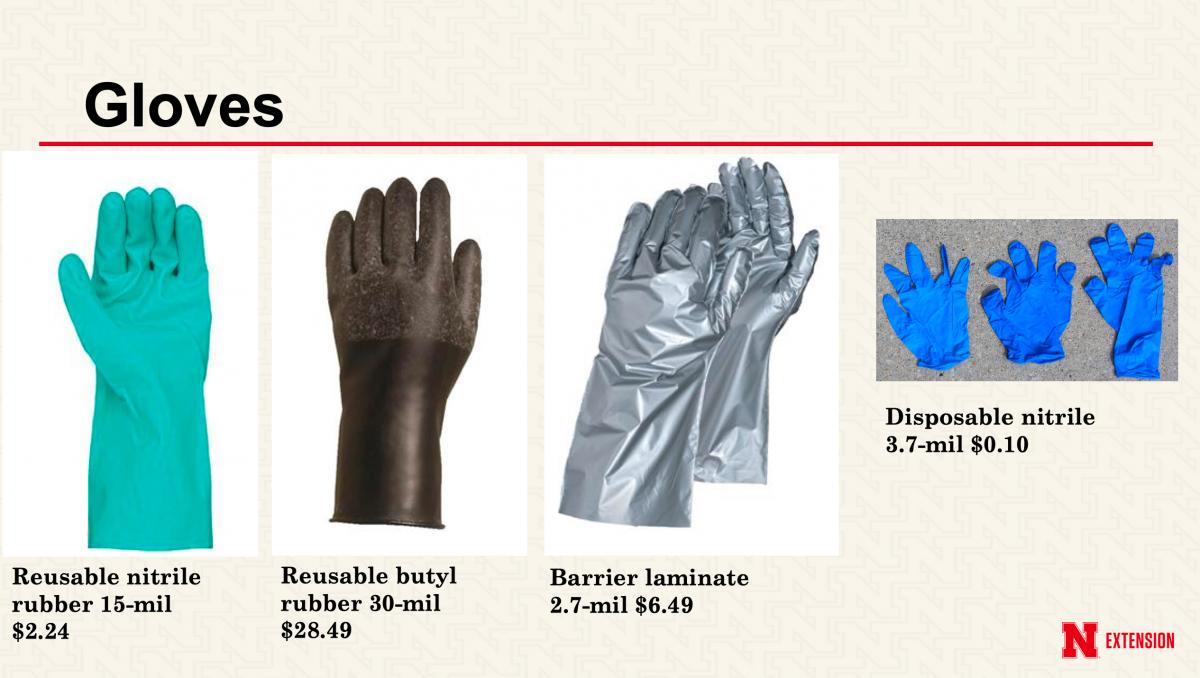Which Type of Gloves Work Best to Protect Against Chemicals
Ad Shop Mechanix Wear Official for Durable Long Lasting Protection Gloves. Polyvinyl chloride PVC polyvinyl alcohol and polyethylene.
Slightly larger size than usual.

. Check a safety data sheet and you might see a tip like Wear impermeable gloves There are a couple of key issues with this type of generic safety recommendation. But make sure the glove material you choose protects against the substances being handled. Generally thicker robust gloves offer greater protection than thinner gloves but thinner gloves offer better dexterity.
Butyl gloves are made of a synthetic rubber and protect against many chemicals such as peroxide rocket fuels highly corrosive acids and strong bases. No one glove material is resistant to all chemicals. Butyl rubber gloves are the best solution when working with chemicals.
Common chemical-resistant gloves include. However thick gloves may impair grip and dexterity. Or various kinds of plastic.
This is reported as ND or not tested NT depending upon the manufacturer. Once a chemical comes in contact with the glove it can quickly permeate. If chemical breakthrough does not occur permeation is not measured.
Abbreviations used for glove material. The wrong gloves enhance chemical contact. Advanced Protection Against A Variety Of Threats.
Short gloves are fine to protect against splashes. No glove can remain chemical-resistant forever. Chemical-resistant gloves protect against incidental chemical contact such as spills and splashes.
Because theyre rubber they dont absorb liquids they come into contact with. The rubber resists harmful chemicals like alcohols ketones nitro-compounds acids bases and even rocket fuel. Buy Now Receive Free Shipping In The US.
This test is also conducted per ASTM F739. Read customer reviews find best sellers. Avoid latex gloves as many people are allergic or develop allergies to this material.
The nitrile examination gloves currently used in most EETD lab areas only provide hand protection for incidental contact from spills splashes or overspray of chemicals. Neoprene gloves protect against most solvents oils and mild corrosive materials. Protect Your Squad We Offer Bulk Discounts.
10 rows Chemical Resistance Gloves. The correct gloves protect against chemicals. Ad Browse discover thousands of brands.
In general latex and nitrile gloves are by far the most common gloves used in research laboratories on campus. Nitrile gloves protect against most chemicals and infectious agents. Butyl Butyl Rubber Gloves Suits Boots Natural Natural Rubber Gloves Neoprene Neoprene Rubber Gloves Suits Boots Nitrile Nitrile Rubber Gloves Suits Boots PE Polyethylene Gloves Suits Boots PVA Polyvinyl Alcohol Gloves PVC Polyvinyl Chloride Gloves Suits Boots Teflon Teflon Gloves Suits Boots Viton Viton Gloves Suits.
These gloves also resist. Magid Safety M011B10 is one of the best pairs of work gloves ideal for electricians as it delivers well in terms of providing you the kind of protection you desperately need. Chlorinated solvents are carcinogenic and are particularly challenging to find appropriate gloves for.
Ad Free 2-day Shipping On Millions of Items. Maximize Performance Protection with Industry-Leading Work Gloves. Standard latex exam gloves are cheap and do provide protection for biological and aqueous radioactive hazards.
As a general rule. Chemical and Liquid-Resistant Gloves. Typical glove materials for chemical protection are latex nitrile neoprene polyvinylchloride or other polymers.
See Quick Tips 191. Glove manufacturers generally state that doubling the thickness of a glove quadruples the breakthrough time of the chemical. There is no universal glove that protects you from all chemicals.
Chemical-resistant gloves are made with different kinds of rubber. Ad Filtration Technology You Can Depend On. However you probably wont find them listed in chemical glove selection guides so if your main concern is chemical protection.
May be made of rubber neoprene. 151 rows Variability in material thickness chemical concentration temperature and length of. Maxiflex 34-874 Nitrile Grip Work Gloves.
Chemical Resistant Gloves Guide Oxford University. Rubber gloves protect against mild corrosive material. OSHA notes that the thicker the glove material the greater the chemical resistance.
Chemical-Resistant Gloves Guide for more information on selecting a chemical-resistant glove. Nitrile gloves are a good alternative for those concerned about latex allergies. Neoprenelatexnitrile blend gloves have excellent chemical resistance as well as dexterity and are a good choice for cleaning components in acid baths or assembling circuits.
Will contact be from occasional splashes or by total immersion. To protect hands from substanceschemicals choose a glove that meets the European Standard EN374-3. Thicker gauge gloves are heavier and have better chemical resistance than thinner gauge gloves.
These materials can be blended or laminated for better performance. Thinner lighter gloves offer better touch sensitivity and flexibility while chemical resistance is sacrificed. Glove manufacturers usually produce charts to show how well their gloves perform against different substances.
When to Wear Gloves. The gloves should be. To choose the correct glove go to a Glove Reference Chart - links below.
Natural butyl neoprene nitrile and fluorocarbon viton. The following table gives recommended materials for chemically-resistant gloves for work involving a variety of chemicals.

Thin Vs Thick Gloves Gloves Types Of Gloves Safety Gloves

Why Use Different Gloves In The Work Place Red Gloves Types Of Gloves Safety Gloves

Reduce Pesticide Exposure With Proper Gloves Other Ppe Cropwatch University Of Nebraska Lincoln

No comments for "Which Type of Gloves Work Best to Protect Against Chemicals"
Post a Comment